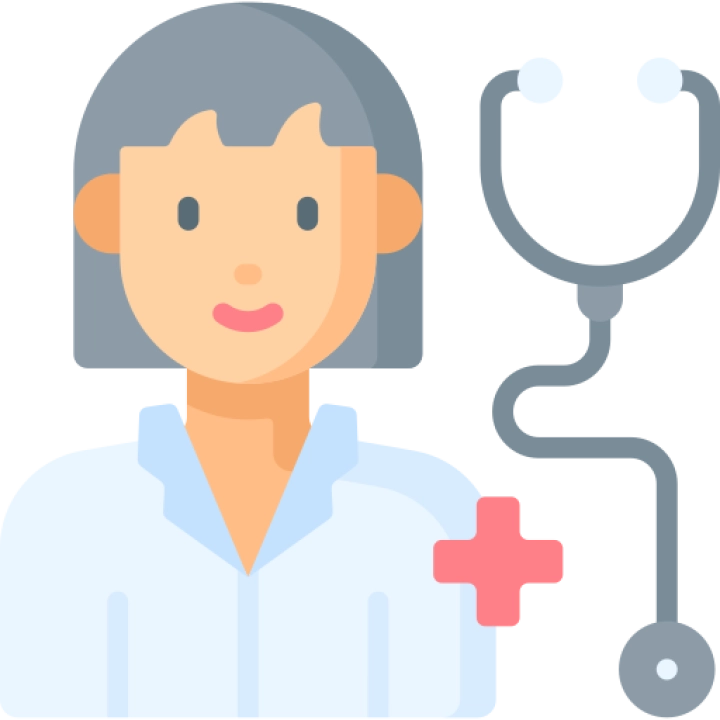College: Health Sciences
The nursing major prepares students to provide compassionate, competent, and evidence-based care to patients in various healthcare settings. Students develop skills in patient assessment, nursing interventions, health promotion, and disease prevention. Graduates are prepared to work as registered nurses in hospitals, clinics, long-term care facilities, and community health settings.
Learning Objectives:
- Understand the fundamentals of nursing practice and patient care.
- Develop skills in patient assessment, nursing diagnosis, and intervention planning.
- Learn techniques for medication administration, procedures, and patient education.
- Explore principles of health promotion, disease prevention, and community health.
- Analyze and interpret patient data and healthcare trends.
- Develop critical thinking, problem-solving, and clinical skills for effective nursing practice.
Main Curriculum:
- Introduction to Nursing
- Overview of key concepts, principles, and practices in nursing.
- Basics of nursing theory, ethics, and professionalism.
- Patient Assessment
- Principles of patient assessment, including health history, physical examination, and diagnostic tests.
- Techniques for conducting comprehensive patient assessments.
- Nursing Interventions
- Principles of nursing interventions, including medication administration, wound care, and therapeutic communication.
- Techniques for planning and implementing nursing interventions.
- Pharmacology in Nursing
- Principles of pharmacology in nursing, including drug actions, interactions, and administration techniques.
- Techniques for safe medication administration and monitoring patient responses.
- Health Promotion and Disease Prevention
- Principles of health promotion and disease prevention, including patient education, screenings, and community health initiatives.
- Techniques for promoting health and preventing disease in individuals and communities.
- Mental Health Nursing
- Principles of mental health nursing, including assessment, diagnosis, and treatment of mental health disorders.
- Techniques for providing compassionate and effective mental health care.
- Community Health Nursing
- Principles of community health nursing, including population health, epidemiology, and health policy.
- Techniques for addressing community health needs and promoting public health.
- Clinical Practicum
- Hands-on experiences in nursing environments, including clinical rotations in hospitals, clinics, and community health centers.
- Application of acquired skills in practical nursing scenarios.
- Nursing Capstone Project
- Comprehensive project to apply skills in patient assessment, nursing interventions, or health promotion.
- Presentation of a polished nursing project, case study, or research presentation.
Evaluation Methods:
- Patient assessment reports, nursing intervention plans, pharmacology projects, health promotion plans, mental health nursing studies, community health projects, clinical practicum reports, capstone projects, group projects, and presentations.
Recommended Textbooks:
- "Fundamentals of Nursing" by Patricia A. Potter et al.
- "Medical-Surgical Nursing" by Sharon L. Lewis et al.
- "Pharmacology in Nursing" by Linda L. McCuistion et al.
- "Health Promotion and Disease Prevention" by various authors.
- "Mental Health Nursing" by Mary C. Townsend.
- "Community Health Nursing" by Marcia Stanhope and Jeanette Lancaster.
Prerequisites:
Basic knowledge of anatomy and physiology, interest in healthcare and patient care.
Major Duration:
The Bachelor of Science in Nursing (BSN) typically takes 4 years to complete, including coursework, clinical training, and capstone projects.
Certification:
Graduates can obtain a Bachelor of Science in Nursing and pursue higher education or professional certifications, such as the National Council Licensure Examination for Registered Nurses (NCLEX-RN) or specialized certifications in areas like critical care or pediatric nursing.
Target Audience:
Aspiring registered nurses, healthcare providers, and professionals seeking careers in hospitals, clinics, long-term care facilities, community health settings, and various nursing-related roles. This major equips students with the clinical, diagnostic, and patient care skills necessary to excel in nursing, supporting careers in diverse healthcare environments.































